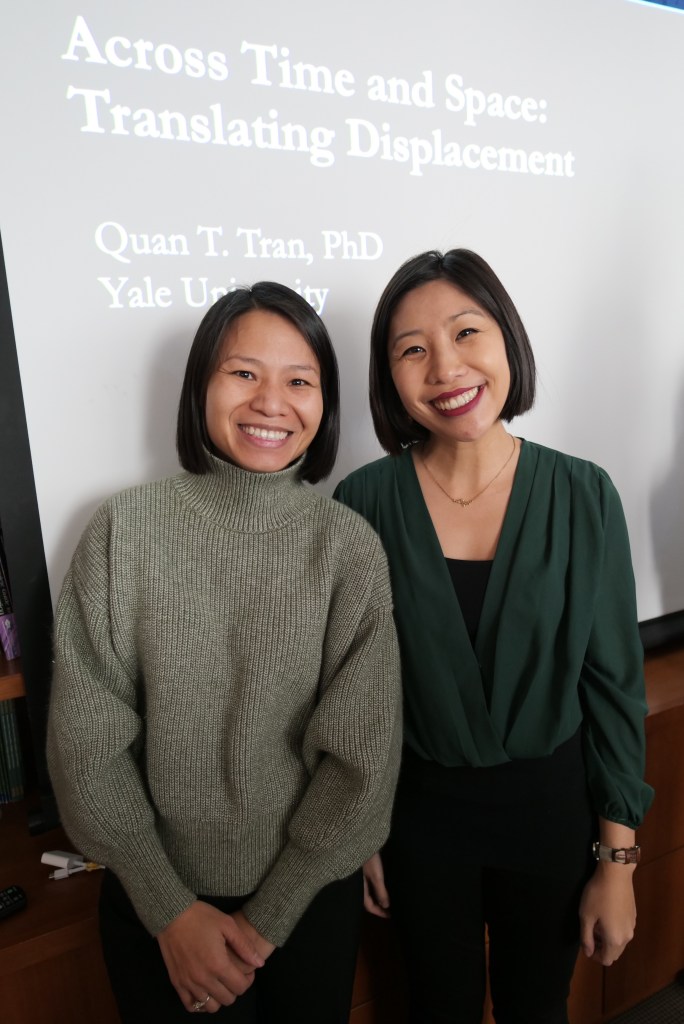In February 2020, I was invited to speak at an innovative event on translation and creative expression organized by the scholar Catherine H. Nguyen from the Committee on Degrees in History and Literature and the Committee on Ethnicity, Migration, and Rights at Harvard University. Together with poet-scholar Quan Tran, we shared our scholarship and arts practice. I spoke about my scholarly research and its intersections with artistic expression and personal history. It was a refreshing and radical opportunity to speak honestly about my ‘historian-artist’ identity and diverse body of work–from research essays and teaching on Vietnamese history to film-poetry on translation and feminist performance art.


I talked through the playful creation of my film on translation as the complete embracing of non-linear, layered narrative. I also talked about how translation makes space for power, healing, and gratitude. I was a bit nervous during the talk, but I wanted to share a few thoughts on my mind: I’ve been thinking about the practice of translating words from our personal lives. Translating allows us to move across time and space, to spend time with a word, its textures, and dwell on how it sounds on our lips. Through this meditation, we recall memories, places, and people. And finally, through the act of translation, we infuse the word with new meaning and communicate it to a contemporary context.
We opened up a conversation about translation not as simply a one to one translation, but a negotiation between sentiment, relationships, and cultural-political contexts.
One of the most striking questions raised was about the relative absence of father-figures in both mine and Quan’s work. Through tears and with great difficulty, I spoke about the heavy weight of my father’s sacrifices for our family, and how the lack of verbal communication makes it nearly impossible to write about my father. I spoke through how writing “Ba / Father 23:03” was a process of healing and gratitude. Through writing narratively about a traumatic memory of my father, I began to understand all the different roles of my father–as hero, as human, as provider, and as victim.
We concluded with an experimental playful activity on “Creative Translation.” I’ve been eager to work through this activity ever since writing the book Creative Every Day and through making my film “The Undeniable Force of Khó Khăn.” This activity is also part of my project “Family Notes: A Conversation Toolkit.” Below is the template for the activity:
Thank you so much to everyone for this empowering, playful, and honest conversation about translation and its profound beauty.






